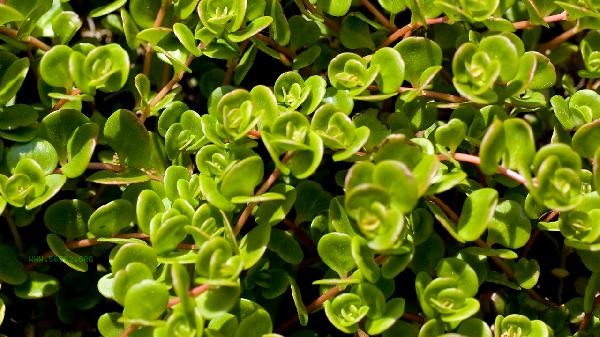The Xiaohan solar term usually falls on January 4-5 of the Gregorian calendar. January 5, 2010 is the Xiaohan solar term, which is on the sixth day of the 29th lunar month. As the saying goes, "Xiaohan is extremely cold, and it turns into a cluster of ice. The Xiaohan and Dahan solar terms are the coldest solar terms of the year. Modern disease statistics have confirmed that heart disease and cerebrovascular disease are prone to occur in cold regions geographically and in cold winters seasonally. Elevated blood viscosity, slow blood flow, and vasoconstriction are the main reasons for the aggravation or onset of cardiovascular diseases in winter. Traditional Chinese Medicine believes that the occurrence of cardiovascular and cerebrovascular diseases is related to pathological factors such as blood stasis and phlegm, which belong to the nature of yin. Therefore, when discussing coronary heart disease (chest obstruction) in the "Synopsis of Jin Kui", it points out that this disease is "yang wei yin xian", which refers to insufficient yang qi, especially in the heart and kidneys, and "yin xian" refers to excessive blood stasis and phlegm turbidity.
Yang Qi is very important for human life activities. The Yellow Emperor's Inner Canon, "On the Integration of Qi and Heaven," states that "Yang Qi, if the sky and sun are lost, will shorten one's lifespan and not be fully displayed." There is also the saying that "Yang Qi, when refined, nourishes the spirit, and when soft, nourishes the tendons. On the winter solstice, yang energy is born. Although the yang energy gradually increases from the winter solstice to Xiaohan, it is still weak compared to spring and summer. Cold excess can damage yang qi, so Xiaohan should nourish yang and promote blood circulation through the Xiaohan solar term, in order to reduce the occurrence of cardiovascular diseases. How does Xiao Han nourish Yang? Here are a few suggestions:
1. In terms of daily life: go to bed early and wake up late, do not stay up late. If you go to bed before midnight in summer, you should go to bed at midnight in winter, which means it is best to go to bed between 9-11. The outdoor activity time should be short to avoid damage to the yang energy caused by cold air.

2. Diet: It is not advisable to eat cold drinks. Some elderly people may also experience angina attacks when eating cold drinks in winter. You can eat some warm and moist food. Warm meat foods such as lamb and venison, fruits such as longan and sesame, and vegetables such as carrots.
Here are some foods suitable for the Little Cold Term recuperation for your reference:
1. Longan Congee: 15g longan meat, 50g rice, 50g purple rice, panning once, adding some water, and cooking until the rice is rotten. It can be eaten once a day three days before and after the Little Cold Term.
2. Red Flower Lamb: 600 grams of tendon lamb, 3 grams of ginger, 1 gram of saffron, 1 gram of fennel, 2 grams of cinnamon, and 1 liang of green onions. Rinse the mutton with blood water, cut it into small pieces of 2cm square, add water to the pot and boil until it boils, remove the foam, remove it and drain it. Add a little vegetable oil to the pot, stir fry 1 liang of scallions until fragrant, add lamb, stir fry several times, add warm water and seasonings, and simmer over low heat until the meat is tender. If left to dry, boil over high heat with 1 pound of radish and water. It can be consumed 2-3 times during the Xiaohan season.
3. Goji and Sanqi Duck: One Ma duck, 20 Ningxia goji berries, 3 grams of sorghum, 5 grams of Cistanche deserticola, 5 grams of Sanqi, an appropriate amount of garlic, and 10 milliliters of cooking wine. Duck should be processed as usual, cut into small pieces, boiled in hot water to remove oil, and dried for later use. A little vegetable oil, stir fry garlic until fragrant, add duck chunks, stir fry for a moment, then add warm water, add goji berries, ginger, wolfberry, and cooking wine, simmer over low heat until the water is dry and the meat is tender. You can add a little salt for seasoning. Can be consumed 1-2 times.
4. Shredded dried tofu with Chinese onion: half a jin of shredded tofu, 3 grams of angelica, 50 grams of Chinese onion, and 10 grams of starch. Crush the Allium chinense with a knife, boil Angelica sinensis in water for about 50 milliliters, and add 10 grams of starch to make a soup. Add a small amount of vegetable oil, stir fry until light smoke comes out, then pour in the scallion and stir fry until fragrant. Add shredded tofu, stir fry, add Angelica sinensis soup ingredients, stir fry briefly, and then take out of the pot for consumption. Suitable for vegetarians and people with severe coronary heart disease.




Comments (0)
Leave a Comment
No comments yet
Be the first to share your thoughts!